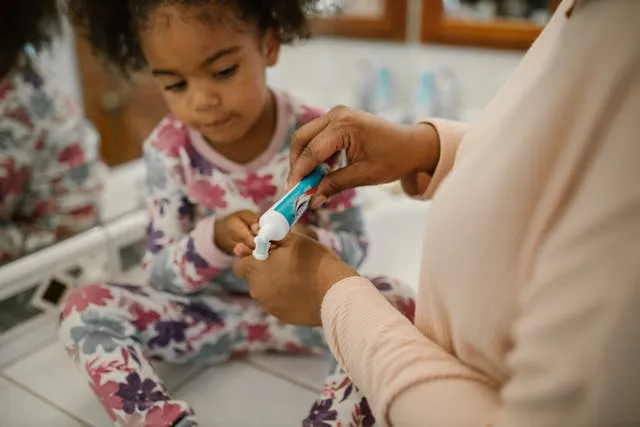Boosting Your Family’s Oral Health: Practical Tips for Every Household

Understanding the Importance of Oral Health
Oral health is vital to general wellness but frequently overlooked in its significance. Proper oral hygiene can significantly influence overall health. Studies show a significant connection between oral health and overall health issues, including heart disease, pneumonia, and complications during pregnancy. These connections underscore the importance of integrating oral health into daily routines as a preventative measure for maintaining long-term health outcomes. Ensuring family members maintain proper oral hygiene is more than just creating confident smiles; it is vital for enhancing life quality and lowering the likelihood of chronic illnesses. By considering Delta Dental family plans, families can secure comprehensive dental coverage that supports routine care and unexpected needs, contributing to overall health and wellness.
Also Read: PedroVazPaulo Wealth Investment: Build Your Wealth
Daily Habits for a Healthier Smile
The foundation of excellent oral health lies in consistency and proper technique, making daily habits incredibly influential. Adequate brushing requires a soft-bristled toothbrush and fluoride toothpaste used twice daily to eliminate plaque and bacteria gently. Flossing complements this by cleaning the spaces between teeth where a brush cannot reach, preventing interdental decay and gum problems. Moreover, using an antiseptic mouthwash helps eliminate lingering bacteria and freshens breath, boosting oral hygiene. Committing to these essential steps daily will prevent dental issues and contribute to a vibrant smile reflecting well-maintained health practices. Educating every family member about correct brushing and flossing techniques can foster a preventive attitude towards oral health maintenance, drastically reducing potential problems and healthcare costs.
Motivating Children to Brush Effectively
Engaging children in positive dental routines requires creativity, patience, and consistency. Young children often have difficulty understanding the importance of brushing, so turning it into an adventure can help inculcate good habits early on. Using musical toothbrushes that play a song for the duration, they should brush or use apps that make brushing educational and fun, help capture their attention, and make brushing time enjoyable. Parents can also leverage stories or role-playing games about healthy teeth mascots battling cavities, making dental care imaginative and relatable. The CDC emphasizes that children’s early learning experiences in oral health significantly influence their lifelong habits. Setting an example and participating in brushing times together makes brushing a family bonding ritual, ultimately reinforcing these healthy practices and ensuring they become enduring habits.
The Role of Nutrition in Oral Health
A balanced diet is pivotal in maintaining strong teeth and healthy gums. Nutrition influences the immune response to oral pathogens and contributes to remineralization processes crucial for fortified enamel. Foods rich in sugars and acids cause demineralization, weakening tooth enamel and inviting decay. Conversely, incorporating nutrient-dense foods like apples, carrots, and leafy greens can help in saliva production, which naturally cleanses the mouth. Calcium-rich foods, including cheese and yogurt, and phosphorus-rich items like meat and eggs, work together efficiently to improve enamel and bone density. Educating families on the importance of a diet that limits sugary snacks and drinks will empower them to make choices that nurture their teeth and promote overall digestive health. Recognizing the impact of nutrition is a proactive defense against dental problems, laying a foundation for a healthier lifestyle.
Scheduling Regular Dental Visits
Regular dental visits are critical to preventive care, providing professional cleanings and expert evaluations that can catch issues before they develop into significant concerns. Dentists offer tailored advice based on individual needs, enhancing and optimizing home care routines and ensuring effective preventive strategies. Regular visits also facilitate early detection of potential problems, such as cavities, gum disease, or systemic conditions exhibited through oral health changes, allowing for timely intervention and treatment. Consistent consultations with a dental professional emphasize oral education, encouraging informed decision-making and proactive participation in dental health. These visits invest in securing health over the long run, minimizing discomfort and the need for expensive restorative procedures.
Accessing Dental Resources and Insurance Options
Exploring dental resources and insurance options can demystify the process of obtaining affordable, quality care for the entire family. Comprehensive dental insurance helps alleviate financial burdens associated with regular check-ups and unforeseen dental procedures, making it easier to prioritize oral health without undue financial strain. Staying informed through resources allows families to keep up with emerging dental care advancements and insurance policy changes, ensuring they make informed choices about their healthcare coverage. Understanding insurance plans’ benefits and coverage options can help families choose a plan that best fits their needs for preventive care or extensive dental work. By strategically leveraging these resources, families can maximize their dental benefits and maintain high dental health standards.
Making Oral Health a Family Affair
Integrating oral health into a family’s daily routine promotes better dental habits and strengthens family bonds. Involvement in collective health goals encourages accountability and support, creating a unified approach to oral care. Establishing structured family brushing times helps reinforce habits and allows parents to model excellent oral hygiene practices. Creating interactive charts or family goals with rewards motivates each member to meet their targets, enhancing cooperation and commitment. Celebrating small milestones together fortifies the positive effects of these practices and generates a shared sense of achievement. By making oral health a topic of interest and activity within the household, families cultivate a culture of health consciousness that persists beyond oral care.





